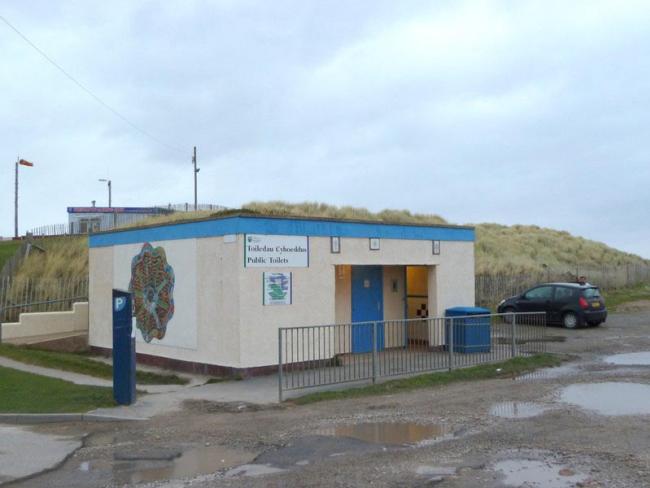Local councils are cutting services and closing facilities across the country. One small town in Wales is making a stand.
Denbighshire in North East Wales has a proud industrial history with mining and steel production. But since the 1970s, like many areas of Britain, the main source of employment and income for the area has come from tourism.
On paper the county council says it supports the local community and businesses, so its recent decision to save money by closing all its public toilets has sparked a fierce debate.
Some people thought there was a legal obligation for councils to provide toilets. Under the 1976 Local Government Act, councils in England and Wales have the power to install them in “relevant places” but no legal obligation to do so.
The small Denbighshire tourist town of Llangollen on the River Dee receives thousands of visitors a year: a whole section of the town car park is set aside for coaches. Its inhabitants are leading a campaign to oppose the county council decision. If the public toilets next to the car park close, coach companies say that stopping in the town will not be feasible.
In 2016 the Welsh parliament discussed moves to compel councils to create a strategy ensuring public toilet provision across Wales. At the time Raymond Martin of the British Toilet Association said, “It’s something that we could do with across the UK. Having decent public toilets is good for public health, business and the prevention of disease. It’s civilised.”
Now, across Wales and Britain, some say the priority to “rebuild Ukraine” not to provide the simplest infrastructure to keep a local economy functioning here.

